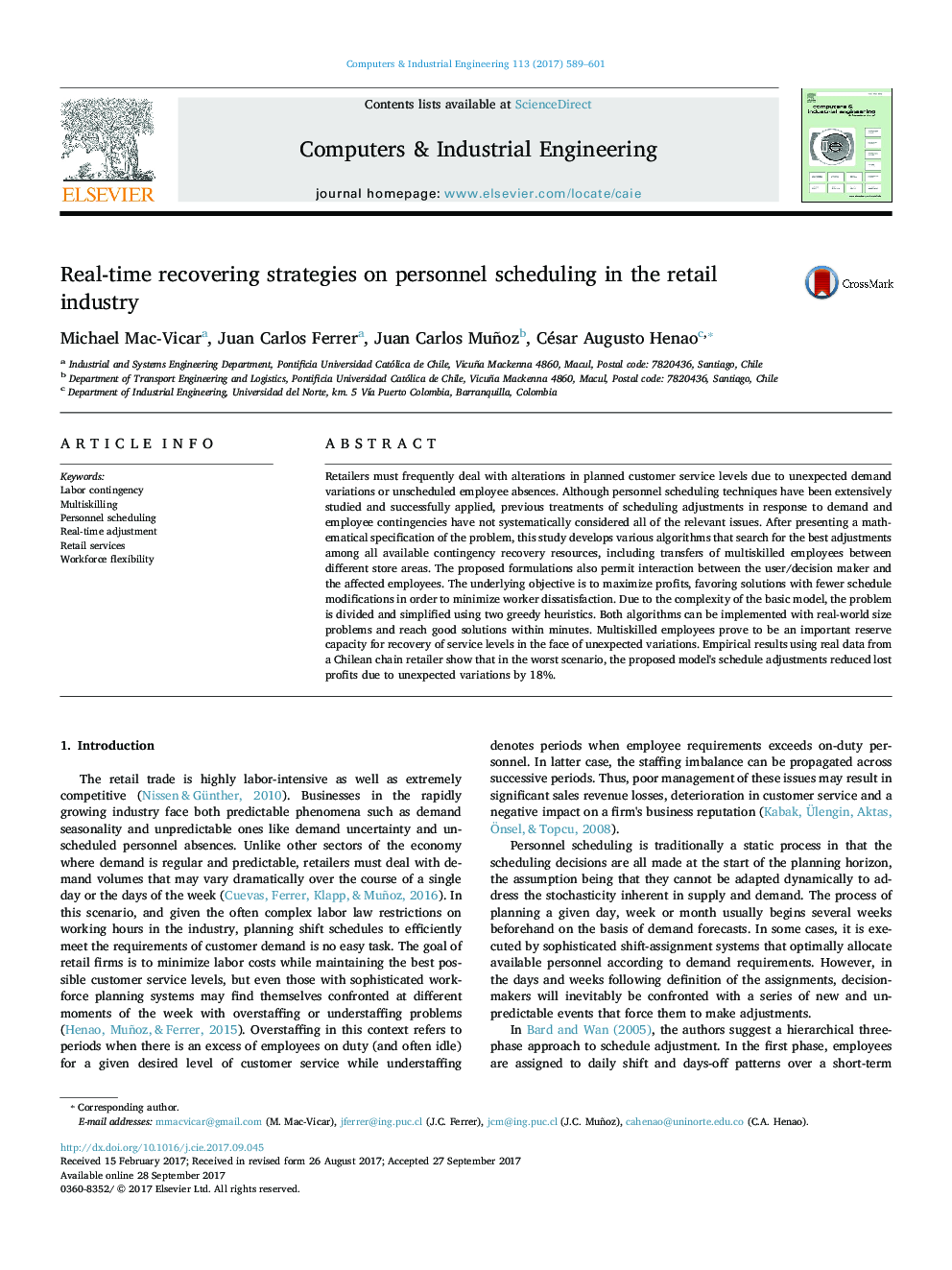| Article ID | Journal | Published Year | Pages | File Type |
|---|---|---|---|---|
| 5127460 | Computers & Industrial Engineering | 2017 | 13 Pages |
Abstract
Retailers must frequently deal with alterations in planned customer service levels due to unexpected demand variations or unscheduled employee absences. Although personnel scheduling techniques have been extensively studied and successfully applied, previous treatments of scheduling adjustments in response to demand and employee contingencies have not systematically considered all of the relevant issues. After presenting a mathematical specification of the problem, this study develops various algorithms that search for the best adjustments among all available contingency recovery resources, including transfers of multiskilled employees between different store areas. The proposed formulations also permit interaction between the user/decision maker and the affected employees. The underlying objective is to maximize profits, favoring solutions with fewer schedule modifications in order to minimize worker dissatisfaction. Due to the complexity of the basic model, the problem is divided and simplified using two greedy heuristics. Both algorithms can be implemented with real-world size problems and reach good solutions within minutes. Multiskilled employees prove to be an important reserve capacity for recovery of service levels in the face of unexpected variations. Empirical results using real data from a Chilean chain retailer show that in the worst scenario, the proposed model's schedule adjustments reduced lost profits due to unexpected variations by 18%.
Related Topics
Physical Sciences and Engineering
Engineering
Industrial and Manufacturing Engineering
Authors
Michael Mac-Vicar, Juan Carlos Ferrer, Juan Carlos Muñoz, César Augusto Henao,
